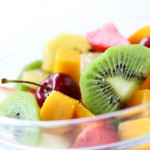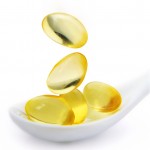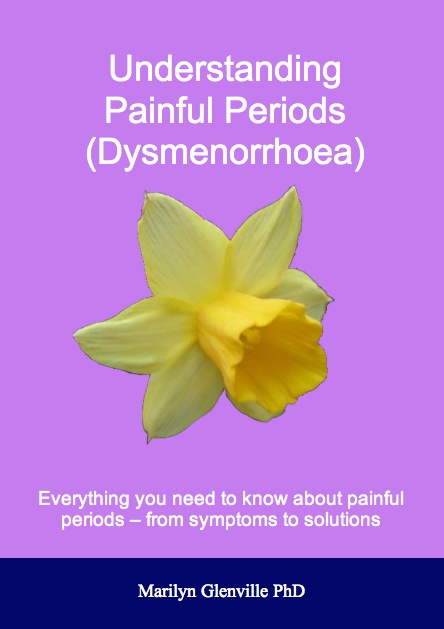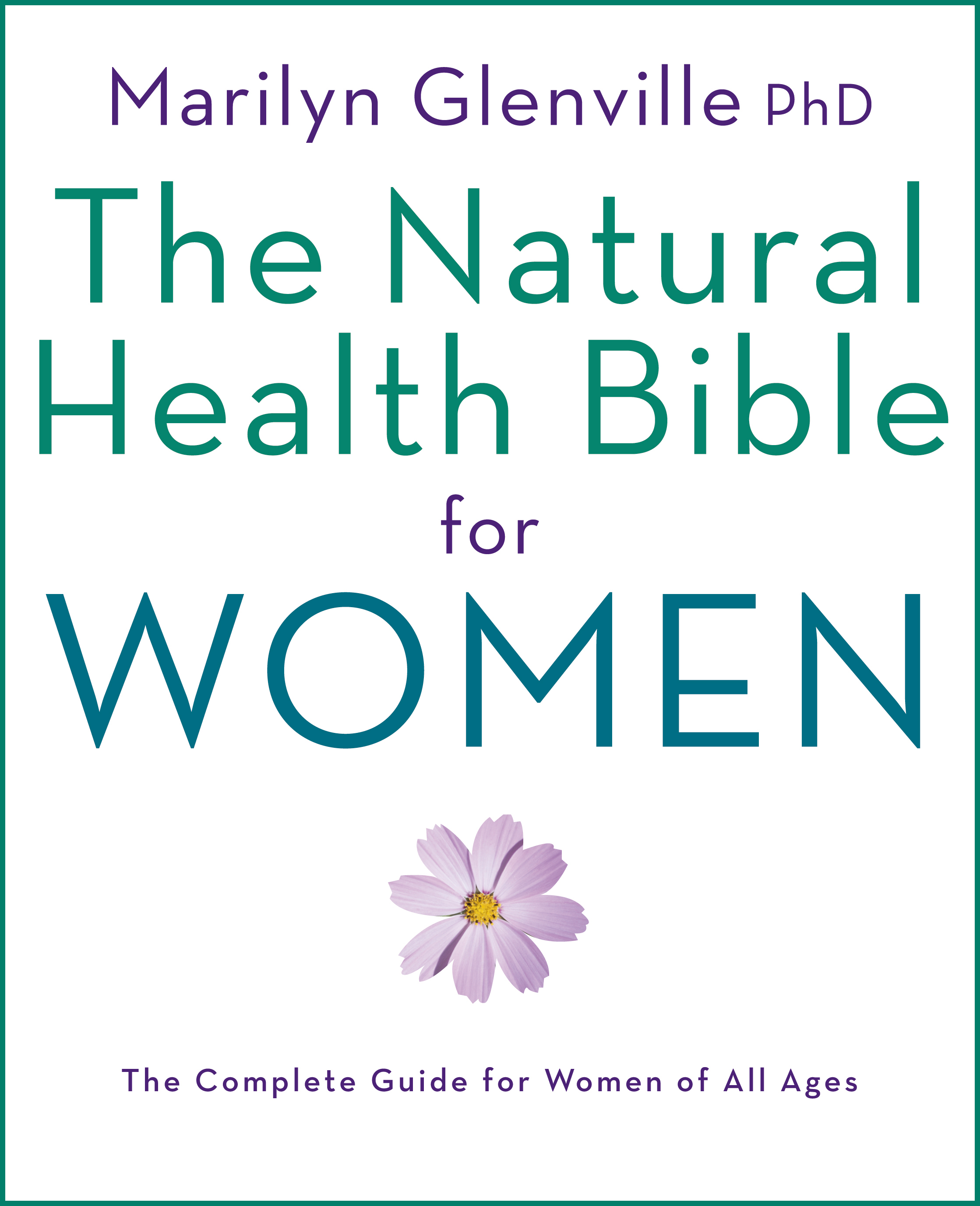Is Vitamin C Good For Menstrual Cramps
Painful Periods

It is estimated that between 50 and 70 percent of women endure some degree of period pain and cramping. Of those, approximately 10 percent experience contractions so extreme that they are one and a half times more powerful than labour pains.
How painful is painful?
Every month many women suffer from pain around the time of their periods. For some women the pain can be so debilitating that they are forced to take time off work or can only get through their periods by dosing themselves with painkillers. Pain is normally considered to be a message from your body, telling you that something is wrong and that an investigation is in order. However, painful periods are viewed somewhat differently by the medical profession and many women who complain of period pains are advised to take a painkiller and to get on with it.
Every one of us has a different pain threshold, and it is impossible to imagine what another person might be experiencing. Only you know whether or not your period pains are unacceptably high for you, and if the pain is affecting the quality of your life, it's time to do something about it.
What are the symptoms?
Obviously pain is the overriding symptom in dysmenorrhoea, but many women will experience other symptoms, including:
- nausea
- vomiting
- diarrhoea/constipation
- fainting
- light-headedness
- feeling dizzy
- headaches
- exhaustion and lethargy
The pain itself can vary and women will often experience two types of pain:
- a constant low back ache like a dull ache (congestive dysmenorrhoea)
and/or
- cramping pains like contractions (spasmodic dysmenorrhoea)
What are your choices?

Because pain is usually a warning signal from your body, it is important that the pain is investigated. But period pains can, however, be unusual in that there may actually be nothing medically wrong and are simply an abnormal functioning of your body around the time of your period. This is pretty good news because it means that if you can get things back into balance, you'll not only get rid of the pain but you'll prevent it from returning. What the natural approach aims to do is to treat the condition, not simply mask the pain or 'turn off' your cycle. Furthermore, if you work to put your body back into balance, all aspects of health and well-being will be improved.
Supplements

The supplements recommended below have been studied in clinical trials and have been found to be effective in connection with painful periods. For best result you should take them over a period of three months, at the end of which you should be reassessed in order to monitor improvements and changes and then adjust the supplement programme according to your new condition.
Multivitamin and Mineral
A good quality multivitamin and mineral would form the foundation of your supplement programme to make sure that you are getting a 'little bit of everything'. You then add in those nutrients in slightly higher amounts which are known to be helpful for painful periods.
Vitamin B6
Vitamin B6 is needed to help produce 'good' prostaglandins which help to relax and widen blood vessels as opposed to 'bad' prostaglandins which increase the womb contractions and increase the pain. So it is worth taking a good B-complex supplement. This vitamin has been shown to significantly reduce the intensity and duration of period pains.
Vitamin B1
This B vitamin is very effective in helping with period pain. In one study, it was given to 556 women (aged 12 to 21 years) who had moderate to severe dysmenorrhoea. Some of the women were given the B1 first for 90 days and then changed to a placebo. Others were given the placebo first for 90 days and the B1 next. A full 87 percent of the women were completely cured after starting the B1 treatment. This effect remained for at least two months after the B1 was stopped.
Vitamin B12
Because both vitamins B1 and B6 are helpful with treating period pains, the best approach is to take a vitamin complex. This also gives you vitamin B12 and it has been found that a combination of fish oil and B12 is actually more effective than just fish oil on its own for relieving dysmenorrhoea.
Vitamin E
Up to 70 percent of women have found the supplementation of vitamin E to be useful in treating painful periods.
Vitamin C and bioflavonoids
Bioflavonoids are helpful with period pain because they help to relax smooth muscle and reduce inflammation. Bilberry is one of the best bioflavonoids for this, but other bioflavonoids can be helpful. Include berries of any kind (including blackberries, blackcurrants, raspberries and even grapes) in your diet.
Magnesium
Magnesium acts as a muscle relaxant and it has been shown to have a beneficial effect on painful periods and lower back pain so it is worth taking as a supplement.
Magnesium also has the ability to lower the 'bad' prostaglandins that may be causing the womb to over contract.
Finally, along with vitamin B6, magnesium is required by your body to help convert the essential fats into beneficial prostaglandins. Try always to take them together.
Zinc
This mineral is important for eliminating period pains because it is needed for the proper conversion of essential fatty acids.
Omega 3 Fatty Acids
Taking Omega 3 fatty acids in supplement form can extremely important in the treatment of painful periods. Research has shown that women with low intakes of Omega 3 fatty acids (the ones that come from fish, linseed and walnuts) have more painful periods than women who have a good intake. The study that found this link also discovered that the extent of the pain was connected to the ratio or balance of the Omega 3 and Omega 6 fats. The women with the worst period pains ate a much lower level of Omega 3 fats in relation to Omega 6 fats.
Many of the women I see in the clinic have been taking evening primrose oil supplements – an Omega 6 fatty acid – for years and have not been eating enough Omega 3 oils, or taking them in supplement form, to counterbalance this. Some women are also taking combinations such as Omega 3, 6, and 9 in supplement form because they have heard that we need a good balance of all the Omega fatty acids. This is true, but you have to take into account what your own levels may be in the first place. It is no good adding in more Omega 6 if you have already got enough or in fact too much in your body. (You can now have a blood test to tell you if you have the correct levels of Omega 3 to Omega 6 in your body see below). To check whether you have sufficient levels of Omega 3 please click Omega 3 Deficiency Test
Period pains can be caused by substances called prostaglandins. Many prostaglandins are healthy; however, some increase your body's sensitivity to pain and can cause your muscles to spasm and are termed "bad" prostaglandins. High intakes of saturated fats (found mainly in dairy and animal products) can encourage your body to produce bad prostaglandins, highly inflammatory substances that can cause swelling and pain in the pelvic area. The Omega 3 essential fatty acids are vital for your body to produce the anti-inflammatory 'good' prostaglandins.
Bromelain
This is an enzyme contained in pineapples and it has been found to be extremely useful for treating painful periods. It has anti-inflammatory properties and helps as a natural blood thinner. Bromelain also acts as a smooth muscle relaxant and is thought to decrease the 'bad prostaglandins and increase the 'good' prostaglandins.
Furthermore, by adopting a healthier lifestyle you will be more likely to prevent painful periods which is discussed in detail in the rest of this ebook which you can read by clicking on Understanding Painful Periods ebook at The Natural Health Practice
Herbs

Herbs can have a tremendous impact on helping with the period pains while you are working on your diet. The approach is two-fold, using diet and herbs to work on normalising hormone balance and then taking different herbs to help you to cope with the worst symptoms. At the beginning you may require painkillers and herbs to deal with the pain; however, gradually your dependence upon the painkillers will be reduced to the point where they are unnecessary. Eventually it will also be possible to stop taking herbs.
Dong Quai
This herb is classed as a 'woman's tonic' and there has been a great deal of research into this herb. In 2000, the American Pharmaceutical Association published a review of the herbs that are of special interest to women and dong quai featured as the main herb of choice for period pains.
Dong quai helps to encourage the normal functioning of the womb by changing the rhythm of the contractions and by improving the circulation to the womb. By making sure the blood supply to the womb is optimum, it helps to ensure that enough oxygen reaches the tissues, which acts to minimise pain and cramping. Quite apart from all of this, dong quai acts as a natural painkiller.
Studies have also shown that dong quai helps to regulate the production of prostaglandins, which is an important factor in helping with painful periods.
Caution
You should not take any of the above herbs if you are taking, The Pill, Fertility drugs, HRT or any other hormonal treatment or other medication unless they are recommended by a registered, experienced practitioner.
Tests

There are a number of tests available that are extremely useful and are well worth considering. These tests can give you invaluable insights into understanding what is going on in your body at the moment and can tell you what vitamin and mineral deficiencies and heavy toxic metal excesses you may have. They can let you know what your general condition is and how well your digestive system is functioning and then explain what action you need to take to rectify any imbalances the results may reveal. The analysis of these results lets you know what supplements you need to take in order to bring your body back into balance and into optimum health. This is also designed to help prevent these problems from recurring in the future. You would then be re-tested after three months to monitor your progress and to adjust the supplement programme accordingly.
Mineral Deficiency Test with Supplement Programme (hair)
Find out what the mineral and heavy toxic levels are in your body
This test measures the deficiencies and excess levels of 12 different minerals (including calcium, chromium, cobalt, copper, iron, magnesium, manganese, phosphorus, potassium, selenium, sodium and zinc) and 6 heavy toxic metals (including aluminium, arsenic, cadmium, lead, mercury and nickel) that may be present in your body. Find out more – Mineral Deficiency Test with Supplement Programme (hair)
Online Personalised Supplement Assessment Programme
Discover what vitamins and minerals you need and should be taking
The analysis of this comprehensive questionnaire will give you a three monthly supplement programme to help balance any vitamin and mineral deficiencies you may have. Find out more – Online Personalised Supplement Assessment Programme
Omega 3 Deficiency Test (at home finger prick blood)
If you want to find out if you are getting enough Omega 3 fatty acids from your diet and whether you have the correct balance of essential fatty acids.
Signs of an Omega 3 fatty acid are dry skin, lifeless hair, cracked nails, fatigue, depression, dry eyes, lack of motivation, aching joints, difficulty in losing weight, forgetfulness, breast pain. If you have also tried to lose weight by going on a low-fat or no-fat diet, you are likely to be deficient in these essential fats. It is also extremely important with painful periods that you have good levels of Omega 3 fatty acids. It is now estimated that we are getting ten times more Omega 6 fats from our diet than Omega 3 and over the last century there has been an 80% decrease in the consumption of these Omega 3 fatty acids. When you eat Omega 3 fats they are converted to substances that have an anti-inflammatory effect on the body.
Many of the women I see in the clinic have been taking evening primrose oil supplements – an Omega 6 fatty acid – for many years as it can be helpful with PMS. But you can end up with too much Omega 6 and not enough Omega 3 in your body. Some women are also taking combinations such as Omega 3, 6, and 9 in supplement form because they have heard that we need a good balance of all the Omega fatty acids. This is true, but you have to take into account what your own levels may be in the first place. It is no good adding in more Omega 6 if you have already got enough or in fact too much in your body. (You can now have a blood test to tell you if you have the correct levels of Omega 3 to Omega 6 in your body see below). To check whether you have sufficient levels of Omega 3 please click Omega 3 Deficiency Test (at home finger prick blood)
After three months you would then have a re-test in order to monitor your progress and adjust your supplement programme according to your new condition.
If you need help in obtaining any of the supplements, herbs or tests mentioned above, click, painful periods options at The Natural Health Practice. They can supply all of them for you online or if you prefer to talk to somebody first you can also order by mail order on the telephone. The products supplied by this company are always of the highest quality.
Plan of Action
Nutrition
Ensure you are getting the right nutrition.Follow the dietary recommendations outlined in the free The Foundation of Health ebook For more information on the special dietary recommendations for painful periods, read the rest of the ebook on Understanding Painful Periods ebook at The Natural Health Practice
Supplements
The supplement programme below should be taken for at least three months in order to achieve best results
Nutrients & amounts
| A good multi-vitamin & mineral supplement | Vitamin E | 400iu as d-alpha tocopherol | |
| Vitamin B Complex | 25mg | Vitamin C with bioflavonoids | 1000mg (twice) |
| Zinc | 15mg | Omega 3 fish oils | (providing 770mg EPA and 510mg DHA) |
| Magnesium | 300mg | Bromelain | 500mg (three times between meals) |
To avoid having to purchase numerous supplements for all of the above and to make the process easier, I have put together a supplement programme which contains all the nutrients mentioned above and in the correct dosages. For more information about these click Painful Periods Supplement Programme.
In my book 'The Natural Health Bible for Women' I explain the impact of nutrition on painful periods and also give in great detail a list of the most important nutrients and herbs required in order to help you.
If you would like to order these special supplements now, you can do so through the Natural Health Practice by clicking Painful Periods Supplements at the Natural Health Practice.
Read More

The section above forms part of a larger ebook on Painful Periods.
In the rest of the ebook you will learn what the medical approaches to painful periods are and how to combine them with the natural approach. This is called Integrated Medicine and is the way that healthier of the future is moving towards. You will also learn what medical tests will give you an accurate diagnosis of your condition and if you really need to have them. The medical treatments for painful periods are then examined which can include looking at either drugs or surgery. Each treatment is then discussed and the pros and cons of the options explained. The Integrated Approach to painful periods is considered in some detail so that if appropriate you can know how to combine the best of both conventional and natural medicine.
At the end of the ebook is a practical step by step summary of what you can do to help yourself.
If you would like to read the rest of this ebook click, Understanding Painful Periods ebook at The Natural Health Practice and you will be given details of how you can download the whole ebook.

Or if you would like even more in depth advice about Painful periods then read 'The Natural Health Bible for Women' book – An international best seller.
Disclaimer
The contents of this site are for information only and are intended to assist readers in identifying symptoms and conditions they may be experiencing. This site is not intended to be a substitute for taking proper medical advice and should not be relied upon in this way. Always consult a qualified doctor or health practitioner, especially if you are pregnant, taking the pill or on any medication. Your situation will need to be looked at individually and you should not attempt to self treat. The author and publisher cannot accept responsibility for illness arising out of the failure to seek medical advice from a doctor.
The views expressed by third parties placing material on these pages are not representative of the views of the author or publisher. The Author and Publisher cannot monitor the content not produced by us and has not reviewed all the third party material published on this site and the Author and Publisher accept no liability whatsoever in relation to the content of third party material placed on these pages.
Is Vitamin C Good For Menstrual Cramps
Source: https://www.marilynglenville.com/womens-health-issues/painful-periods/

0 komentar:
Posting Komentar